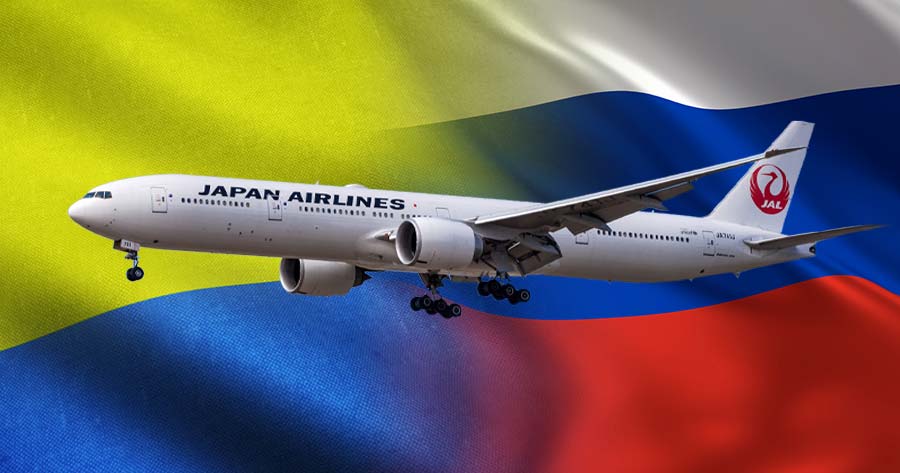Western countries, including the U.S., Canada and European nations had closed their airspace to Russian planes as part of many other sanction measures imposed on the Kremlin for its invasion of Ukraine. On the other hand, Russia in a move to retaliate also closed their skies to those that directly or indirectly meddled with its “special operation” in Ukraine.
The sanction that was intended to put pressure on Russia seems to be decent at first, but now the world is starting to feel the impact, finding it difficult for air travel when aircraft could not fly above Russian airspace, especially flights between North Asia and Europe that have been among the most reliant on Russian skies.
Flights from Japan to European countries, London in particular, required extra hours for travel. Normally, flights from Tokyo (HND) to London (LHR) for Japan Airlines will fly west over Russia and take approximately 11hr47min.
However, due to the closure of Russian airspace, JAL needed to reroute by heading straight for Alaska, taking a northerly route over Canada, coming in over central Greenland, flying over Iceland, and to arrive in London. According to the flying data, the flight JL43 on March 4, 2022 took 14hr50min, which is three hours longer than it normally is.
“Taking into consideration risks that may arise in the future due to the current situation in Russia and Ukraine, some of our flights to/from Europe have been cancelled, while some flights will use different flight routes than usual,” wrote Japan Airlines on the website.
Lufthansa‘s flight LH728 from Frankfurt (Germany) to Beijing (China) was also required to reroute as well. The plane headed south of Russian airspace, adding 700 nautical miles and prolonging the flight time by almost two hours. Meanwhile, the airline’s cargo division has announced a cancellation to Hong Kong and Beijing until the end of March due to high operating costs and a decrease in cargo volume.
As for the Thai airlines, the Tourism Authority of Thailand (TAT)’s governor Yuthasak Supasorn said last Thursday that the flight route for Thailand to UK has not been affected as it does not pass the territorial airspace of either Russia or Ukraine.
Etihad Airways UK, Qatar Airways and Singapore Airlines have confirmed that the Russia-Ukraine tensions have not affected their Thailand-UK flight routes, the governor said.
Moscow would feel the most impact from sanctions, being the sole target in the eyes of the world. However, countries that imposed sanctions also faced difficulties as a side effect from their actions as energy prices are on the rise.
European gas and power futures soared to new records after the U.S. said it was planning to ban imports of Russian oil. Dutch benchmark gas surged as much as 35% while German month-ahead power climbed 23%.
Engie CEO Catherine MacGregor said on France Inter radio Monday that Europe may lack gas next winter if the continent decides to ban imports of the fuel from Russia.
Oil prices also reached 14-year high earlier this morning as the international benchmark Brent crude briefly hit $139 a barrel and the U.S. West Texas Intermediate reached $130 a barrel.
The impact from sanctions does not only stop at disputed countries, Thailand, for example, also feels the effect from high commodity prices as well. The gas price matched the level of 2008, causing hardship on consumers, which will later display in a higher figure of inflation and economic slowdown.
In the end, no parties will benefit from this meaningless dispute.





